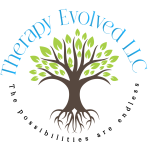Embarking on EMDR therapy is a significant step towards emotional and psychological healing.
After each session, you might experience mixed emotions and recall memories you haven’t thought about in years.
This is all part of the healing process. This guide will help you understand what to expect after your EMDR sessions, providing a roadmap for your journey to recovery. It’s an invaluable resource for anyone going through post-EMDR therapy.
Key Takeaways
- EMDR therapy often leads to an initial emotional roller coaster, temporary distress, and a heightened awareness of thoughts and feelings, but it can also induce self-compassion and an optimistic outlook long-term.
- Post-EMDR, individuals might experience vivid dreaming, the emergence of new memories, or a sense of lightness, indicating that the brain continues to process trauma, and while responses vary, these reactions signify healing.
- Long-term benefits of EMDR include reduced symptoms of anxiety and depression, improved mental wellness, resilience, and diminished emotional impact from traumatic memories, with effective personal transformations.
What Can I Expect After an EMDR Therapy Session?
Stepping out of an EMDR session might feel like you’re coming off an emotional rollercoaster. This response occurs because EMDR therapy targets traumatic memories directly, often leading to an increased awareness of your thoughts and feelings.
You may find yourself navigating a spectrum of emotions, ranging from relief and newfound clarity to feeling emotionally depleted or even temporarily more distressed.
Don’t be alarmed by these initial reactions; they indicate that your brain is actively processing the trauma during and after the session.
As EMDR therapy progresses, many individuals experience a positive emotional shift. This shift can manifest as increased self-compassion, a realization that the trauma was not your fault, and a more optimistic outlook on life.
EMDR therapy operates on a holistic level, addressing both the psychological and physiological impacts of trauma and fostering comprehensive healing.

Short-Term Effects of EMDR Therapy: Exploring the Immediate Benefits
EMDR therapy initiates a series of transformations immediately following your session. Let’s delve into the common immediate effects:
Vivid Dreams: Your brain, actively processing therapeutic insights, might generate more vivid dreams. This indicates a healthy engagement in the healing journey.
Memory Recall: The therapy often unlocks new memories or details about your trauma, presenting them as fragments or complete scenes. While unsettling, this represents a significant step forward. Revisiting these memories in a safe, therapeutic setting allows for processing and healing.
Feeling Lighter: Many individuals experience relief or a feeling of lightness post-EMDR session. It’s as though the emotional burden of the trauma has diminished, opening up a new perspective.
Varied Responses: It’s crucial to recognize that responses to EMDR therapy vary widely. Among the experiences patients might encounter are:
Increased Vulnerability: Diving into traumatic memories may lead to feelings of vulnerability or tears. This natural reaction stems from confronting deep-seated emotions. Also, the demands of EMDR therapy, both emotional and mental, might leave you feeling exhausted. This fatigue is a temporary, typical response, indicating your brain’s active engagement in processing.
Nevertheless, remember that these reactions are integral to the healing path. So, if you have any concerns about your experiences, it’s crucial to communicate openly with your therapist.
Long-Term Transformation: Unlocking Lasting Benefits with EMDR Therapy
EMDR therapy sets its sights not merely on providing temporary relief but on fostering long-term healing. As you engage with EMDR over time, you may notice a marked decrease in your anxiety and depression symptoms.
Through effective EMDR therapy, you’ll find yourself reacting with less intensity to triggers tied to past traumas. It equips you with the resilience needed to tackle future stressors head-on. The impact of EMDR often extends beyond symptom relief, ushering in positive shifts in social interactions, relationships, and personal development.
EMDR’s approach to processing traumatic memories paves the way for a sustained decrease in PTSD symptoms. Even if memories make their way back to the surface post-treatment, their emotional sting tends to be significantly diminished. This reduction in emotional intensity leads to fewer negative thoughts, flashbacks, and intrusive images related to the trauma.
The long-term benefits of EMDR therapy cover a broad spectrum. Generally, you should expect enhanced mental well-being, bolstered resilience, improved daily functioning, healthier relationships, lower stress levels, and better sleep quality.
Self-Care and Coping Strategies After EMDR to Support Your Healing Journey
Self-care is crucial as you process and integrate the effects of EMDR therapy. Here are some strategies to nurture your well-being:
- Nourish Your Body: Focus on healthy eating, staying hydrated, and getting enough rest. This supports your brain’s processing and integration work.
- Gentle Movement: Engage in walking, yoga, or light stretching activities. Physical activity can help release tension and facilitate emotional release.
- Creative Expression: Activities like painting, drawing, or playing music can provide an outlet for processing emotions and self-expression.
- Grounding Practices: After an EMDR session, mindfulness, meditation, or deep breathing can help you feel calm and centered.
- Manage Stimulation: Avoid overwhelming sensory or emotional stimuli as they can be overstimulating during this sensitive time.
- Listen to Your Body: Take breaks from intense exercise and avoid alcohol and drugs, which can hinder the healing process.
- Reduce Stress: Try to avoid stressful situations that could overwhelm you. Manage existing stressors with healthy coping mechanisms.
- Journaling: Journaling can help process the session’s material, but use your discretion. If the trauma target wasn’t fully addressed or you feel very upset, consider talking to your therapist before journaling.
- Stay Connected: Avoid complete isolation and rumination. Talking to trusted friends and family or engaging in supportive activities can be beneficial. Remember, trusting the natural integration process is key to coping.
Moreover, your therapist can provide personalized recommendations for self-care after your EMDR sessions. Communicate openly with them about your experiences.

The Role of Support Systems During EMDR Treatment
While EMDR therapy is a personal journey, it doesn’t have to be a solitary one. Having a strong support system helps secure improved outcomes in EMDR. Therefore, connecting with supportive loved ones or even pets can provide crucial emotional validation and encouragement.
Family and friends can be powerful allies in your EMDR recovery. They can offer informed support, listen as you process traumatic memories, and foster better communication and understanding. A supportive network that offers empathy and patience during the ups and downs of trauma recovery can significantly contribute to your development of coping skills and resilience.
At Therapy Evolved, we understand the importance of creating a safe and supportive environment for our clients. Our team is known for its down-to-earth, relaxed, and supportive approach, enhancing the healing environment for those undergoing EMDR therapy.
Embark on Your Healing Journey with Personalized EMDR Therapy at Therapy Evolved
Are you ready for a healing journey that’s tailored specifically to you? At Therapy Evolved, we champion personalized care over the one-size-fits-all model. Our EMDR therapy services are thoughtfully designed to meet each client’s unique mental health and emotional needs.
We enhance our standard EMDR protocol with integrative, evidence-based treatments, including bilateral stimulation, to effectively process traumatic memories. Led by Cheryl Guerriero (LMHC), who boasts over 20 years of experience, our team of licensed psychotherapists possesses a broad range of expertise. This diversity allows us to tackle a wide array of mental health issues, particularly those arising from relationships and childhood experiences.
Benefits of Our EMDR Treatment for PTSD
- Reduced PTSD Symptoms: Our evidence-based approach helps significantly reduce symptoms like anxiety, depression, and flashbacks associated with PTSD.
- Enhanced Emotional Processing: EMDR therapy at Therapy Evolved facilitates the processing of traumatic memories, leading to a lasting reduction in their emotional impact.
- Improved Daily Functioning: By overcoming the effects of trauma, you can experience better daily functioning in work, relationships, and social situations.
- Increased Resilience: EMDR therapy provides coping mechanisms to effectively manage future stressors and challenges.
Located in Massachusetts with the option for convenient virtual therapy, Therapy Evolved offers a broader reach to those in need of specialized mental health services. This ensures you receive the right help at the right time, regardless of location. Schedule your consultation and explore how EMDR therapy can help you heal from trauma.
When to Seek Additional EMDR Sessions
The need for additional EMDR sessions varies from person to person. Working closely with your therapist to evaluate your progress and decide whether more sessions would be advantageous is essential.
For enduring outcomes, multiple EMDR sessions are often advised, particularly if a single session does not achieve full recovery. If you experience an intensification of negative feelings or find coping more challenging following EMDR therapy, it’s important to communicate openly with your therapist. They can then modify your treatment plan or suggest more sessions to tackle these issues.
EMDR Beyond Trauma: Extending Its Healing Touch
Although Eye Movement Desensitization and Reprocessing have gained acclaim for their effectiveness in treating trauma, their utility spans much further. EMDR offers significant benefits for a diverse array of conditions, including:
- Anxiety disorders
- Mood disorders
- Phobias
- Addiction
- Eating disorders
- Chronic pain
- Sleep disorders
- And more
By facilitating the processing of negative experiences, EMDR enhances self-esteem and transforms detrimental beliefs, paving the way for profound psychological healing and well-being.
Get EMDR Therapy When You Need It With Our Telehealth Services
The digital age has revolutionized therapy, making it more accessible and convenient.
Virtual EMDR therapy is just as effective as in-person sessions in reducing symptoms of PTSD, anxiety, and depression. Some benefits of virtual EMDR therapy include:
- Comfort and Convenience: Receive treatment from the comfort of your own home.
- Increased Accessibility: Virtual therapy eliminates scheduling conflicts and transportation barriers.
- Cost-Effectiveness: Virtual therapy may be more affordable than traditional in-person sessions.
- Reduced Stigma: Virtual therapy can help overcome the stigma associated with seeking mental health treatment.
Virtual EMDR follows the same eight-phase protocol as in-person therapy, with adaptations for Bilateral Stimulation (BLS) in a virtual setting.
At Therapy Evolved, we offer virtual EMDR services to ensure continuity of care for clients facing various situations, such as travel or schedule disruptions. This allows you to maintain consistent progress in your healing journey, regardless of external circumstances.
Frequently Asked Questions
How do you know if EMDR is working?
You’ll know EMDR is working when the traumatic memory or anxious thought feels less overwhelming and emotionally distressing, indicating desensitization and reprocessing are happening.
How long does it take to see results from EMDR?
In most cases, people undergoing EMDR therapy will start to see a reduction in their symptoms within a few sessions. The effects of EMDR may last for a long time after treatment, but some individuals may need to return for more sessions.
What are the aftereffects of EMDR?
After an EMDR session, it’s common to experience physical reactions such as sweating, shaking, or muscle tension, which are normal reactions to trauma and will subside. You may also have trouble sleeping, which is a common aftereffect.
What are the long-term benefits of EMDR therapy?
The long-term benefits of EMDR therapy include a significant reduction in symptoms of anxiety and depression, diminished reaction to triggers, improved coping mechanisms, enhanced life trajectories, and an ability to recall traumatic incidents without intense negative emotions or physical sensations. This can lead to a better overall quality of life.
Final Thoughts
EMDR therapy can serve as a potent instrument for healing from trauma, although it might seem daunting to embark on this journey. This guide has equipped you with an understanding of what to expect following an EMDR session.
Remember, you’re not navigating this process alone. At Therapy Evolved, we provide personalized EMDR therapy tailored to your specific needs. Our team is here to assist you in:
- Reducing symptoms of PTSD, such as anxiety, depression, and flashbacks.
- Processing traumatic memories to diminish their emotional impact.
- Enhancing your daily functioning in work, relationships, and social settings.
- Strengthening your resilience to more effectively manage future stressors.
Schedule a consultation with Therapy Evolved today and take a significant step towards your healing journey.
